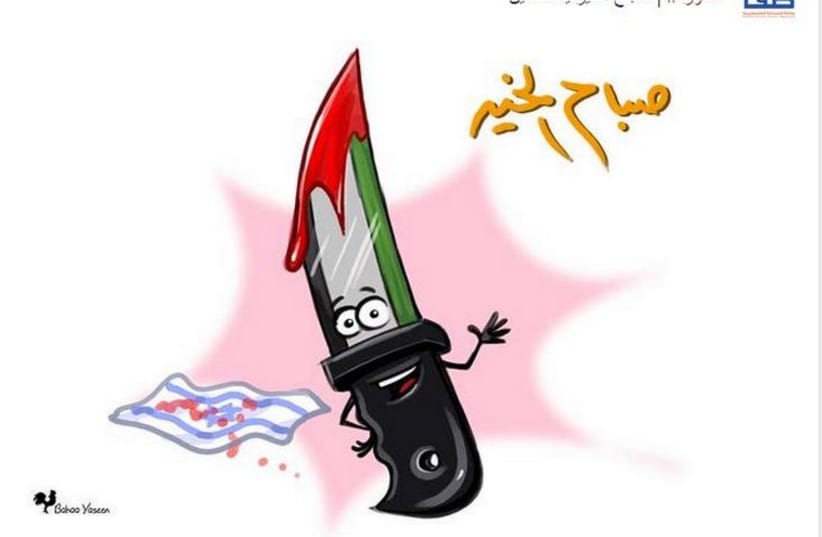Hamas and Fatah are hoping for better times after Trump, and want to show goodwill to Biden – but do their people care?
Noam Bennet, a Middle Eastern political cartoon and social media analyst, sat down this week with the Jerusalem Press Club to give his opinion on what may happen now that Palestinian President Mahmoud Abbas has called for elections.
It has been around 15 years since the last legislative elections in the Palestinian Authority took place, which led to a Hamas victory. That victory turned into a bloody coup d’état in the Gaza Strip. Even though Hamas won the elections, it took control of the Strip through violence, which left the coastal enclave under Hamas control and the PA controlling the West Bank.
Abbas issued a presidential decreed that Palestinian Legislative Council and presidential elections will take place on May 22 and July 31, respectively. This move will allow the Palestinians to vote in their leaders for the first time since 2006.
He has promised elections several times in the past, since his mandate was supposed to have expired in 2009. Yet these repeated attempts for elections have failed multiple times, sometimes due to violent rivalry between Fatah and Hamas.
Analyzing the situation, Bennet says that "two thirds of the people do not believe there will be elections; it has been 15 years since the last elections took place in the Palestinian territories." Abbas is wary of what will happen if and when the people elect their leaders.
Political cartoons that are about individuals who have committed acts of terror against Israel are viewed favorably with the Palestinian people. Like those of jailed terrorist Marwan Barghouti, who wants to run in the upcoming elections and has many supporters among the Palestinian people.
There is also the issue of reconciliation between Fatah and Hamas. If the two groups do not make peace, then elections may not happen because Palestinians in the Strip will not be able to vote.
Bennet added that some Palestinians think that "we have our leader, he’s doing his thing, okay. Maybe we don’t like him, but we don’t think all the time about how to replace him," suggesting that elections are not on their minds and have little impact on the day-to-day life of the average Palestinian.
However, Hamas seems very open to the presidential decree and vowed to “fulfill the promise” offered by the move toward elections. It is reported that Fatah and Hamas will head to Cairo to discuss some of the election details. “It is necessary to expedite the holding of a comprehensive national dialogue in which all Palestinian factions participate without exception,” Hamas said in a statement.
SO WHY did Abbas set dates for the elections – and why is Hamas willing to go along with it? Bennet expressed his view that “The Palestinian system is now divided. Hamas and Fatah are seeing what’s going on… with the new administration of [US President Joe] Biden and after four bad years for them” with former president Donald Trump, “they’re hoping for better times; they want to show goodwill to Biden,” he said.
So now that there may be a more favorable administration in Washington, the Palestinians are in a sense trying to show that not only is the PA a legitimate representation of the Palestinian people, but that they are following Western norms by having elections and should therefore be accepted.
UN Secretary-General António Guterres said that “The holding of elections in the occupied West Bank, including east Jerusalem and Gaza, will be a crucial step towards Palestinian unity” and that it will bring “renewed legitimacy to national institutions, including a democratically elected parliament and government in Palestine.”
These are two key political powers that the Palestinians want on "their side." Bennet once said that even if elections don’t happen, it is still a sign that the PA is a responsible entity that should be taken into account, because they are trying to live up to Western norms. Another gesture of goodwill made by the PA for the international community was its renewed security cooperation with Israel.
Many times, people aren’t using the right glasses when they look at the Middle East,” Bennet said. “Many times, it happens to Americans… they think: ‘If we have elections every four... years, everybody should have [them].’
“There are places in the Middle East that people aren’t thinking about elections all the time." He said, concluding that it is "too early to call" if there are going to be any real changes.
